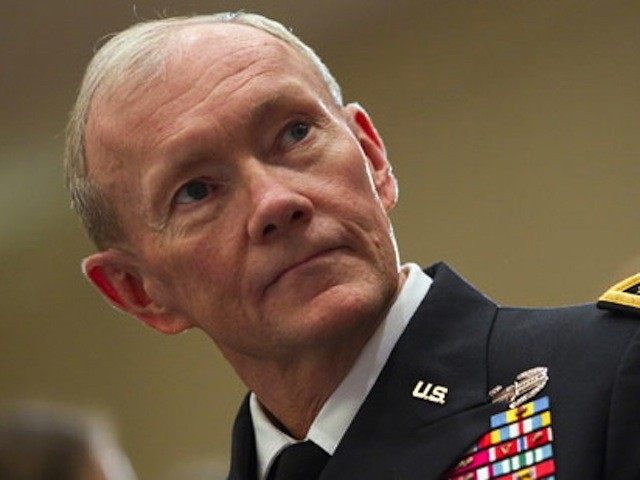Washington (AFP) – America’s new military strategy singles out states like China and Russia as aggressive and threatening to US security interests, while warning of growing technological challenges and worsening global stability.
A somber report released Wednesday by General Martin Dempsey, the chairman of the Joint Chiefs of Staff, warns of a “low but growing” probability of the United States fighting a war with a major power, with “immense” consequences.
Russia has “repeatedly demonstrated that it does not respect the sovereignty of its neighbors and it is willing to use force to achieve its goals,” the 2015 National Military Strategy says.
“Russia’s military actions are undermining regional security directly and through proxy forces.”
It points to Russian troop presence in the Ukraine conflict, though Moscow denies it has deployed its military in eastern Ukraine to bolster a separatist insurgency.
And the report expresses concern about states developing advanced technological capabilities that are causing the US military to lose its edge in that field.
“When applied to military systems, this diffusion of technology is challenging competitive advantages long held by the United States such as early warning and precision strike,” the paper says.
In addition to China and Russia, the paper also includes Iran and North Korea — highlighting their nuclear and ballistic missile capabilities — in a list of countries that pose “serious security concerns” to America and its allies.
“Since the last national military strategy was published four years ago, global disorder has trended upward while some of our comparative advantages have begun to erode,” Dempsey told reporters.
The 2011 report spoke little of Russia.
“China’s actions are adding tension to the Asia-Pacific region,” the document states, in reference to China’s land reclamation efforts to build islands in the contested South China Sea to boost its military and civilian presence.
America’s enormous military has an annual budget of about $600 billion, dwarfing that of any other nation.
And faced with non-state adversaries like the self-proclaimed Islamic State group that has seized significant portions of Iraq and Syria, Dempsey warned of long and complex fights ahead.
“Future conflicts will come more rapidly, last longer, and take place on a much more technically challenging battlefield,” he wrote in the foreword to the report.
Violent extremist groups “pose an immediate threat to transregional security by coupling readily available technologies with extremist ideologies,” the report states.

COMMENTS
Please let us know if you're having issues with commenting.